The most popular topics in the LMU Newsroom
27 Dec 2021
From the effects of the coronavirus pandemic to the volcano eruption on La Palma — the stories that most interested LMU Newsroom readers in 2021
27 Dec 2021
From the effects of the coronavirus pandemic to the volcano eruption on La Palma — the stories that most interested LMU Newsroom readers in 2021
The most read topics 2021:
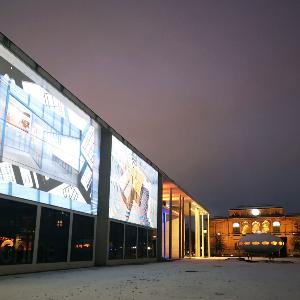
Light installation in front of “Pinakothek der Moderne” art museum in Munich. | © LMU
In January 2021, art was in crisis mode. An interview with Burcu Dogramaci, Professor of Art History at LMU, about the plight of art institutions and artists during the coronavirus pandemic captured the interest of LMU readers.
“The coronavirus crisis has created a lot of uncertainty,” said Burcu Dogramaci during our interview at the start of the year. “Freelance workers, tour guides, and educators at many institutions have been and are being hit particularly hard. And privately funded institutions and collections — for example, in the United States — are also struggling with heavy losses. Overall, there is a mood of paralysis, with everyone waiting and seeing. The next few months will reveal whether this turns into a lasting depression. In any case, it’s a real shake-up, especially for the large museums. This increases the pressure to look inwards, but can also lead to new perspectives."
“Museums need to think even harder about what role they can have in the 21st century in an age where everything is so thoroughly digitalized.”
The situation during the long months of the pandemic was especially challenging for artists, according to Dogramaci: “For many artists, the situation is very difficult. It’s not easy for them to remain visible. This is partly due to the rigid structures of the art market, with access passing through certain established institutions. Artists have got very used to being represented by galleries. Organizing their own affairs, making their art directly visible, communicating over the internet — these things are a challenge for many artists. Moreover, artists have to compete with many other offerings and content in the digital world to remain visible.”
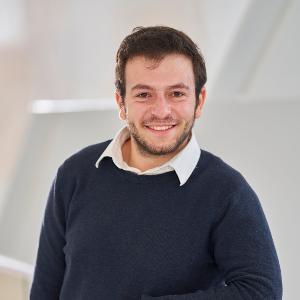
Learned German in just a few months, so that he could quickly commence his studies: Ihssan Louleh. | © LMU / Jan Greune
The Germany Scholarship (Deutschlandstipendium) supports students who have excellent results and are committed to social causes outside their studies. In February 2021, a portrait of the Germany Scholarship holder Ihssan Louleh touched our readers.
Ihssan Louleh came to Munich and LMU from a war zone. When he began his medical studies in Syria, civil war was raging. “Once, on my way to the university, a missile landed just fifty meters away from me,” says Ihssan. Shortly afterward, he and a classmate were almost struck by another missile. “Everything lit up orange,” he remembers. That was the point at which Ihssan could not bear it anymore and started looking for ways of fleeing his home country.
He clearly recalls the moment he got his visa for Germany. “It changed my life forever,” says Ihssan, who is now 22 years old.
The medical student is a recipient of LMU’s Germany Scholarship (Deutschlandstipendium). Thanks to this sponsorship, he has more time to pursue his studies and to help others.
“I’m so grateful to the scholarship board and the patrons,” emphasizes Ihssan. “I’ve made use of my extra time to study and give something back to society.” Currently, Ihsann helps others by making tutorial videos for medical and dentistry students at his former university in Aleppo.
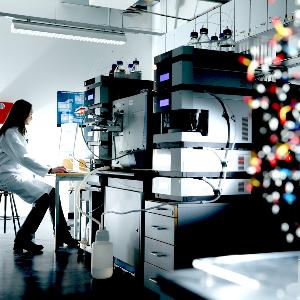
Studying science opens up many opportunities as a researcher — and beyond. | © Jan Greune / LMU
Major problems facing society such as climate change and the energy transition can only be mastered through research in so-called MINT subjects (that is, mathematics, informatics, natural sciences, and technology). In its first edition of 2021, the Munich university magazine MUM examined why it still was that comparatively few women are pursuing a career in MINT fields. It also showcased initiatives and persons that have undertaken to inspire girls and young women to study MINT subjects and pursue a career in MINT fields.
There are also targeted measures at LMU to nurture young female talent. At the Institute of Informatics, for example, the proportion of female doctorates more than doubled in a steady rise from 13 percent in 2015 to 38 percent in 2020, bucking the national trend. “This means LMU has one of the largest shares of women in computer science in the whole of Germany,” said Dirk Beyer, Chair of Software and Computational Systems, to the magazine.
“Diversity is a driver of excellence,” said Professor Francesca Biagini, Vice President for International Affairs and Diversity at LMU in an interview also published in MUM.
“Everyone should pursue their ambitions and be able to fully realize their potential free of any prejudices or preconceived notions,” says Francesca Biagini, who herself is a financial mathematician and has held the Chair of Applied Mathematics at LMU since 2009.
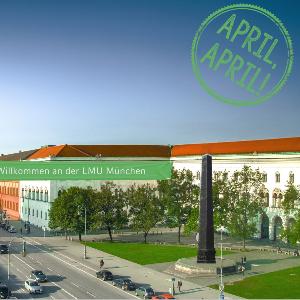
What the supposedly planned redesign would have looked like. | © LMU
The fountains on Geschwister-Scholl-Platz are a popular backdrop for students taking photos. No wonder, then, that a news report claiming they were going to be redesigned caused a stir — and no shortage of jokes — on social media. The April Fools’ joke was one of the highlights among our readers this year.
“Instead of the tiered fountains designed by Friedrich von Gärtner in 1842, which were modeled on Saint Peter’s Square in Rome, two large obelisks will be erected in the middle of the square. This implements the original design that King Ludwig I of Bavaria had once intended for his boulevard and which is inspired by the Piazza del Popolo, also located in Rome — one of the most famous squares in architectural history,” so it said in the news report.
“For a brief moment, I was shocked,” wrote a follower on Instagram. For a lot of people, it was like that: They seemed to fall for the joke at first, until a few minutes later the penny dropped: “My first instinct was to write an angry comment, until I realized the date!”
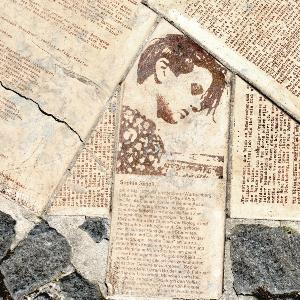
Monument set into the ground in front of the entrance to the main building at LMU. It commemorates the members of the White Rose. | © LMU
Sophie Scholl and Hans Leipelt were born one hundred years ago. They are remembered as two young people executed by an unjust regime. A portrait of the two resistance fighters titled “Her courage leaves a deep impression to this day” was published on the anniversary of the birth of Sophie Scholl and struck a chord with our readers.
The name Sophie Scholl is undoubtedly the best known of the members of the White Rose resistance group. Just a few days after her arrest in February 1943, the resistance fighter was executed in Munich’s Stadelheim Prison.
“Her courage, her steadfastness, her unclouded view of the injustice of the Nazi state and the senseless cruelty of the war continue to leave a deep impression to this day,” says Dr. Hildegard Kronawitter, Chairperson of the White Rose Foundation.
Hans Leipelt, who actively continued the work of the White Rose after the murder of Sophie and Hans Scholl and Christoph Probst, was arrested on October 8, 1943 and put to death on January 29, 1945.
Today, the resistance of the White Rose is commemorated on campus by a monument inlaid into the ground in front of the main building and by memorials and an exhibition in the atrium. But they also live in the hearts of young people as a shining example:
“Sophie Scholl is a role model for moral courage – and we need role models like that. In the digital media, but also at school and university,” says Professor Markus Gloe from the Geschwister Scholl Institute of Political Science at LMU.
His colleague Professor Michele Barricelli from the School of History explains: “Remembrance needs clear messages.” Sophie Scholl’s short life has shaped itself into just such a message. “Her name can get through to people; it opens up the imagination. We associate it with the idea of a different, better Germany.”
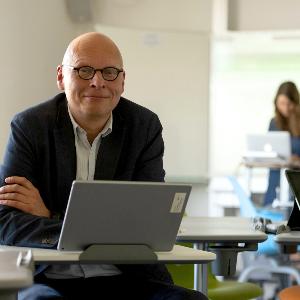
“There are very significant differences in the ability of students to structure and organize their learning by themselves,” says Frank Fischer. | © LMU
Using the possibilities of digital education well — this poses major challenges during the coronavirus pandemic for schoolteachers, university lecturers, and students alike. As such, it is scarcely any wonder that an interview with Frank Fischer, Chair of Empirical Education and Educational Psychology at LMU, generated such interest.
“Transplanting traditional classroom teaching styles into digital modes without modifications is risky,” said Frank Fischer, while emphasizing that learners also had to adjust if they were to get enough out of their on-screen lessons.
Asked about the limits of digital learning, Frank Fischer replied: “We still don’t know, for instance, how long digital learning and digital get-togethers are likely to remain effective. Owing to the restrictions imposed by the pandemic, many of our students have never actually been inside the university. We don’t know what kinds of effects that might have, or whether we might need to compensate for them. In my view, all the socialization processes that normally take place in educational environments have become much more difficult. Learning course content and methodologies is one thing, but becoming a journalist or a psychologist is something else again. What role does the university environment itself play? How important is one’s own understanding of one’s professional role?”
Tips for learners in a nutshell:
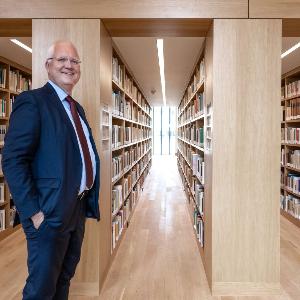
Professor Oliver Jahraus is Vice President for Teaching and Studies at LMU. | © LMU
July 9 was the so-called “Tag für gute Lehre” (Good Teaching Day) at LMU. On this day, LMU handed out its research prizes for excellent students and its teaching innovation prizes for lecturers. “Research is the embodiment of teaching,” said Professor Oliver Jahraus, Vice President for Teaching and Studies, when discussing this year’s awards.
The “Tag für gute Lehre” is designed to promote university-wide discussion about innovative teaching and to facilitate the cross-disciplinary networking of teachers. Awards were handed out to 16 candidates.
Among the prizewinning projects in the teaching category, for example, was an extracurricular workshop that gave law students insights into programming: “Legal Tech Appplications in Practice.” Other prizewinning projects came from the Faculty of Medicine, the Faculty of Biology, the Faculty for the Study of Culture, and the Faculty of Geosciences.
The honors roll for excellent student dissertations had an equally interdisciplinary flavor, with topics ranging from artificial intelligence to climate change to the coronavirus, just to name a few. Prizes went to both bachelor’s and master’s theses.
The prizes for good teaching give a good insight into the activities that go on at LMU, according to Oliver Jahraus: “For that reason I want to beat the drum even more. I know that I will be making life harder for the juries if even more excellent concepts and assignments are submitted. That will naturally add to the need for discussion; and I personally find it hard to pick out the best assignments. This year, I thought all the submissions deserved prizes! That said, trying to choose the right prize winners is one of the nicest “problems” we have at LMU!”
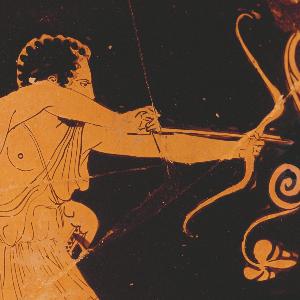
Odysseus kills the suitors: Drawing on the great epics, each polis sought to inscribe itself in the tradition of the Trojan War and create a founding myth for itself. Greek vase painting from the 5th century BC. | © (c) Photograph by Erich Lessing
Has the state of emergency long become the norm? And what can we learn from crises? The research magazine INSIGHTS posed these questions last summer. In an issue on the theme of crisis management, scientists from various disciplines gave a wealth of advice and information on dealing with crises.
Professor Martin Zimmermann, who holds the Chair of Ancient History at LMU, provided insights into the understanding of crisis in the Greek polis:
“The people of antiquity lived in precarious circumstances. The positive notions we have of it are more like idealized images of the modern era; they have little to do with ancient reality,” said the Munich-based ancient historian
On the contrary — famine, earthquakes, war: ancient societies were in permanent crisis mode. People lived with a constant sense of danger and the threat of impending doom. Nevertheless, it was “no contradiction to be living in precarious conditions and yet to see their cities as places of enjoyment and vitality,” said Martin Zimmermann.
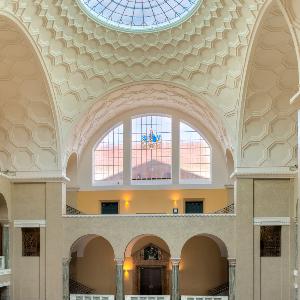
View of atrium (Lichthof) at LMU | © LMU
In the World University Ranking 2022 published by the Times Higher Education (THE) magazine, LMU was once again the highest ranked university in German — news that spread fast and generated a lot of buzz, particularly on LMU social media channels.
Worldwide, LMU was the 32nd highest ranked university, maintaining its position from last year. In Europe it was in 8th place, while in Continental Europe it was 2nd only to ETH Zurich.This year’s THE ranking included more than 1,600 institutions in 99 countries around the world, with British and North American universities leading the field.The THE World University Rankings are primarily based on assessments of the quality of research and teaching programs, as well as citation records. In total, the listing takes 13 indicators into consideration.
Since 2015, the citation records used in the THE Rankings have been compiled in cooperation with Elsevier (Scopus). The top ranked universities in 2022 were the University of Oxford, California Institute of Technology, and Harvard University.
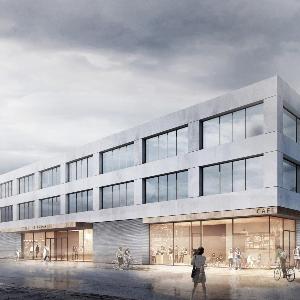
First place in architecture competition: agn Niederberghaus und Partner GmbH, Ibbenbüren
The results of the architecture competition for the “Forum der Physik” (physics forum) in the English Garden attracted a lot of interest. The new building in the center of Munich will house scientific facilities for cutting-edge research at LMU and will also serve as a forum for communicating current research topics to the public.
First prize for the most compelling design as chosen by the jury went to architects agn Niederberghaus & Partner GmbH from Ibbenbüren.
The new “Forum der Physik” is a continuation of LMU's expansion of its strongly research focused physics campus in the English Garden at the heart of Munich. It joins the Nano Institute, which opened its doors in June 2019 as the first building block on the physics campus. The new building will house scientific facilities but will also be used as a forum for communicating current research topics to the public. Construction work is expected to begin in mid-2025.
With a main usable area of 4,800 square meters, the new “Forum der Physik” building includes an exhibition space with cafeteria, seminar rooms, and lecture halls and will also be the new home of the Chair of Physics Education. Additionally, the building will house the offices and laboratories of the three Chairs of Meteorology, alongside a weather station.
“The physics forum will showcase the new physics campus. Exhibitions and events will be held there to report on the latest work of our faculty and address the general public as well as students, teachers, and parents. The winning model not only features compelling architectural design but also accommodates these uses of the building in optimal fashion,” says Professor Ralf Bender, Dean of the Faculty of Physics.
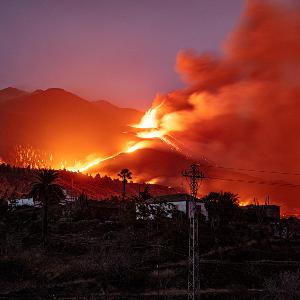
Ubiquitous on La Palma: the eruption of Cumbre Vieja | © Woife Stoiber
“Even for expert volcanologists, every new eruption is a dramatic experience,” says LMU volcanologist Dr. Corrado Cimarelli. In November, he went on a field trip to Cumbre Vieja on La Palma together with a group of students and his colleagues Drs. Ulrich Küppers and Thomas Kunzmann.
In an interview on lmu.de, he spoke about his research and the atmosphere on the island: “The new scoria cone on Cumbre Vieja rises above a group of small villages, which were hit directly. This was the first eruption in Europe for quite some time where a volcano was not just an amazing spectacle, but presented an immediate threat to human life. That’s because, generally speaking, recent volcanic eruptions in Europe have occurred in areas which are sparsely populated. We encountered some highly dramatic scenes while we were on the island … A gas station that was overrun by a lava stream and burnt to the ground; a house encircled by lava, and there in the garden was a paddling pool with toys in it; cars buried by ash; whole plantations and livelihoods destroyed. These are not things you forget.”
When asked how we could deal with a possible eruption in densely populated areas such as those around Vesuvius, the volcanologist replied: “We are essentially powerless in the face of such natural forces. In the case of active volcanoes, the only thing we can do is monitor them with a dense network of instruments and warning systems. In addition, collaboration with the authorities must be very effective. We have the instruments required to forecast eruptions, but forecasts are very often possible only at relatively short notice. And Vesuvius presents an enormous organizational challenge. We’re not talking here about a few hundred people, but hundreds of thousands of people who would have to be evacuated.
“On La Palma, for example, the magma tends not to erupt very explosively, so there was time to get people out of the danger zone. On Vesuvius, there would have been less time to react, because its eruption style would be significantly more explosive. In addition to maintaining a dense monitoring network, it’s crucial to take a proactive approach and design planning policies that limit population density in areas near the volcano.”
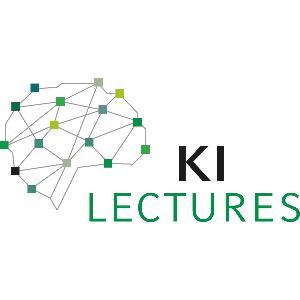
Artificial intelligence is the overarching theme of the winter semester lecture series: scientists from various disciplines are discussing the challenges and opportunities posed by the technology for society and research.
The series of virtual lectures is generating a lot of interest — just as the coronavirus lectures did last year. Several hundred participants are tuning into the presentations. All lectures are subsequently available to watch as videos via the LMU Newsroom.
Recently, Professor Enrique Jimenez described the use of artificial intelligence in the reconstruction of ancient Near Eastern literature: “It’s fascinating to see the text being pieced together before my very eyes out of unassuming shards of clay tablets and coming back to life after lying forgotten for millennia.”
At the panel discussion in mid-December, chaired by Professor Martin Wirsing, the ethical challenges of artificial intelligence were the focus of debate.
The KI Lectures will continue in the new year: On January 11, 2022, Professor Daniel Gruen will talk about the benefits of artificial intelligence for cosmology. Registration for the virtual lecture has already opened.